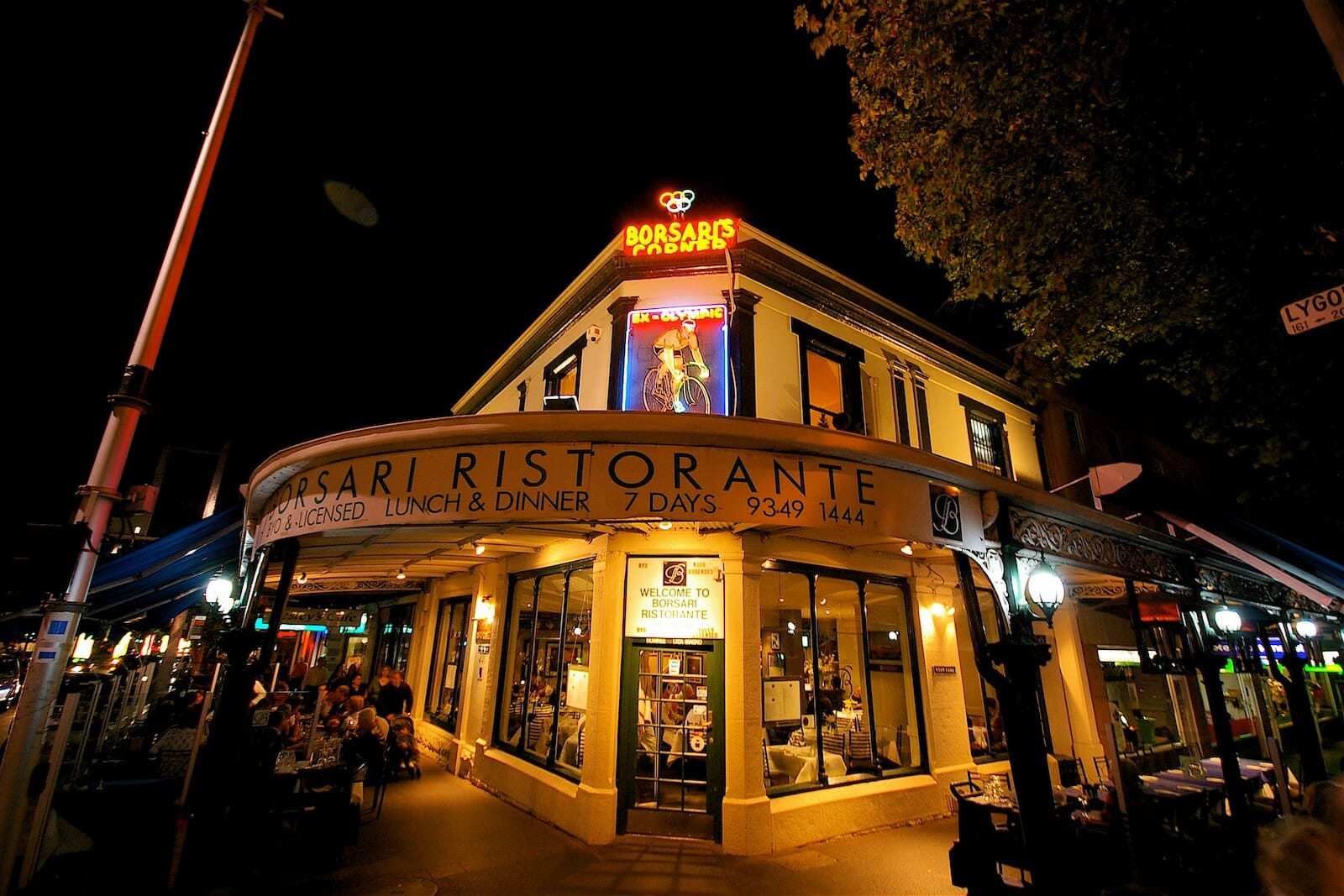
Culture
Blue Steak on Lygon Street: The Mario Corniola Effect
“Is it blue enough?” he growled in affectionate inquiry, referring to the rib eye steak with pepper sauce. Suitably well, came the reply to Mario Corniola. The dish was a specialty that, till the coronavirus struck, made Il Cantuccio on Melbourne’s Lygon Street the most darling of places, a jewel on a stretch of restaurants famed for matters Italian. Mario, the proprietor, had been the chief of the kitchen, the garrulous owner who managed to charm patrons for decades. Aided by his formidable wife, Lori, and other members of the family clan, the restaurant became a Calabrian sanctuary on an island continent.
The impression one gets on entering Il Cantuccio is that of abundant generosity. It enfolds you in the warm brick ambiance or, if it involved Mario, takes you by the arm with bearish vigour. Suspended from the beams: pendulous, empty Chianti bottles. On the walls: rustic reminders in the form of agrarian tools, objet d’art. Never pretentious, always very much the family restaurant playing to its strengths: a set number of firm meat and pasta classics (the no cream in the carbonara, for instance) done to perfection, the occasional special for the adventurous. For the familiars, the special might be the sausages he had recently purchased from his favourite butcher, served with polenta. The dishes would be washed down by the aromatic, full wines of family name.
The meals, on arrival, would be enormous, with portions visible from space. Nothing of the rabbit-food one tends to find in restaurants paid to starve their customers and prize them of their wallets. You left sated, tipsy, stumbling, utterly satisfied, and ready to be poured into bed.
As with any family, treats and culinary transgressions might be tolerated. Mario permitted culinary sins for the regulars as a benevolent parent would a sweet child seeking dispensations. Heretical ketchup might be procured at points. Unorthodox rice might be requested as a replacement for conventional potatoes. Lashings of chili might be asked as an additional ingredient to a dish. Gluten-free options started to find their way into the traditional fare, chipping away at the resolute cliff face of tradition.
There was one, immutable exception to the food regime. With a famed tenacity, Mario policed his restaurant from the invasion of the pizza. The kitchen remained untainted by endeavours to make or serve it. Some inquiring customers taking a seat and gazing at the menu, only to find a complete absence of pizza options, would leave perplexed. They had little reason to: a sign displayed with some cheekiness at the entrance to the restaurant made the injunction clear. Mario would revel in pointed reminder, just as he would ordering a pizza after the patrons had left. That was his indulgence, his deviation from self-imposed convention.
Mario the man of the kitchen was also the man of the table. There was nattering about politics, the odd flourish of a conspiracy theory. To the last, he never quite bought the idea that humans had found their way to the moon. His pleasures were far earthier, his loves, terrestrial. He would hold court when not in the kitchen, perching like a regal bird with full plumage. Walking around the restaurant, he would teasingly charm, armed with his favourite Sambuca, to refill glasses for his favourites.
While the mythology of Lygon Street’s dining culture, with its various fripperies, proliferated, the reputation of Il Cantuccio, with Mario at the helm, held. His name, and that of his family, spread. Prominent visitors made their way to the restaurant. Guests from the United States making their annual visit to Melbourne would make a point of dining there. Photos on the wall leading up to the upper storey show Mario keeping company with the masterful West Indian cricketer, Sir Vivian Richards and that thespian of deep, rumbling voice, Telly Savalas.
During the course of the evening, familiar rituals unfolded. The tradition of bringing in the late edition papers was kept. The uniformed taxi driver was at hand to religiously drive Mario back. At times, exhaustion crept in: he would be found asleep, slumped over wine-stained papers. When he was up to it, conversation would be sustained till early hours of the morning, his robust taking of stances political and ideological a source of enormous entertainment. His hands would be held up like gesticulating meat cleavers.
The arrival of the coronavirus, with its long and extending shadow, had its telling effects. It has taken life in various ways, and maimed others. A good number of businesses have been affected, but, like Tolstoy’s remark about unhappy families, they have affected each of them differently. For Il Cantuccio, magic is location; delight, enjoyed, in situ. Much like seeing an altarpiece yanked from its mountain church abode to find a spot in the British Museum or the Louvre, such restaurant experiences cannot be relocated or resituated. They are often best left in their place of sublime worship.
The Calabrian sanctuary flirted with takeaway options, knowing full well that one cannot put a restaurant atmosphere into a car or convey cosiness in a hot bag. It never went beyond that. Within a few days, the restaurant closed. It re-opened briefly, with seating restrictions, on the easing of the lockdown. The surge of coronavirus cases sent a panicked Victoria into another lockdown, with Australia looking on with consternation.
When news of his death came, the first reaction was that of having one’s leg yanked. Perhaps there was another gambit at play. He had cheated death, gathered the insurance, and rushed off to retire somewhere in the Americas, all along the way moving those hefty arms. But then reality set in. The laboured body that stopped. Somewhere, in the distance, the sound of a broken heart could be heard.

